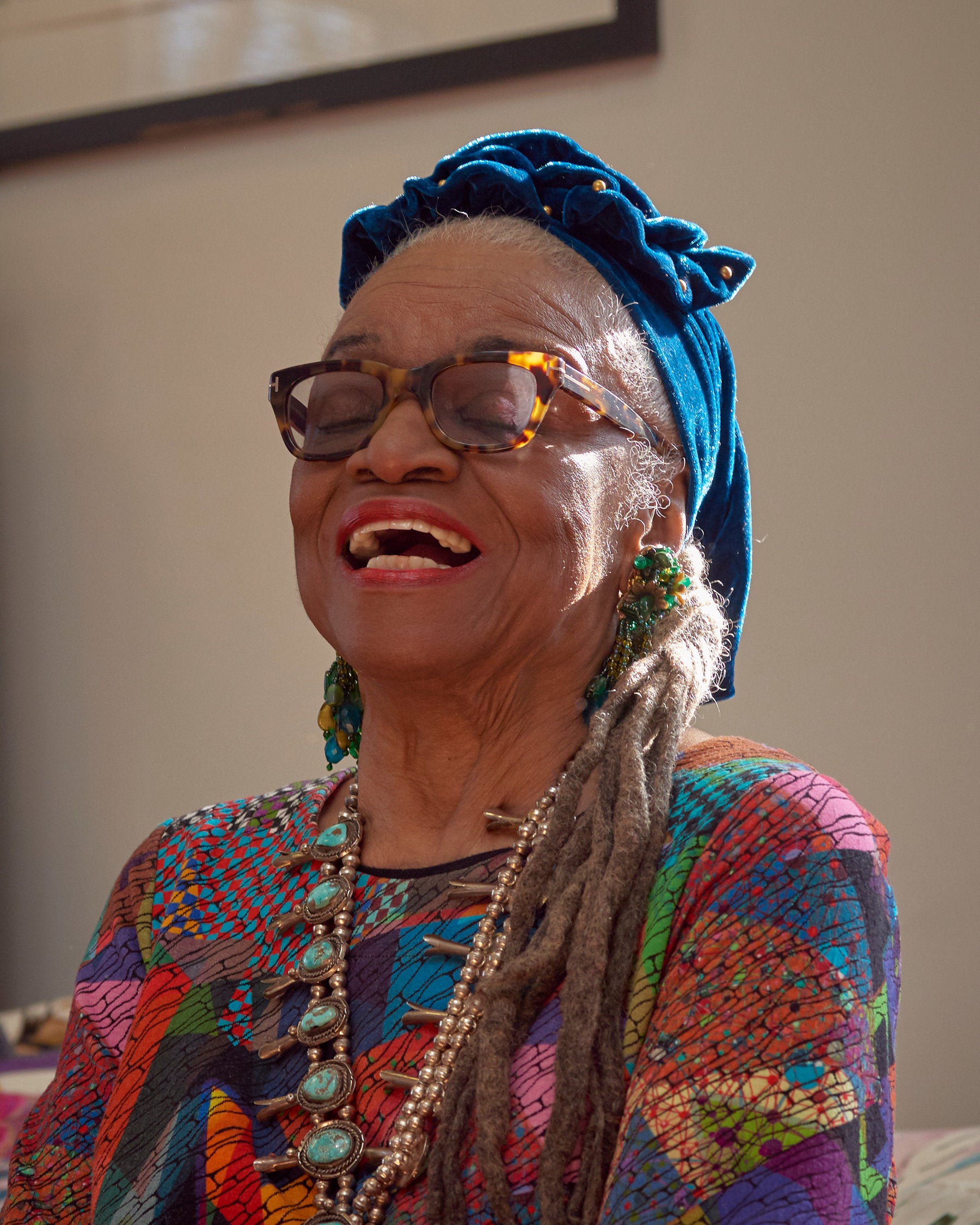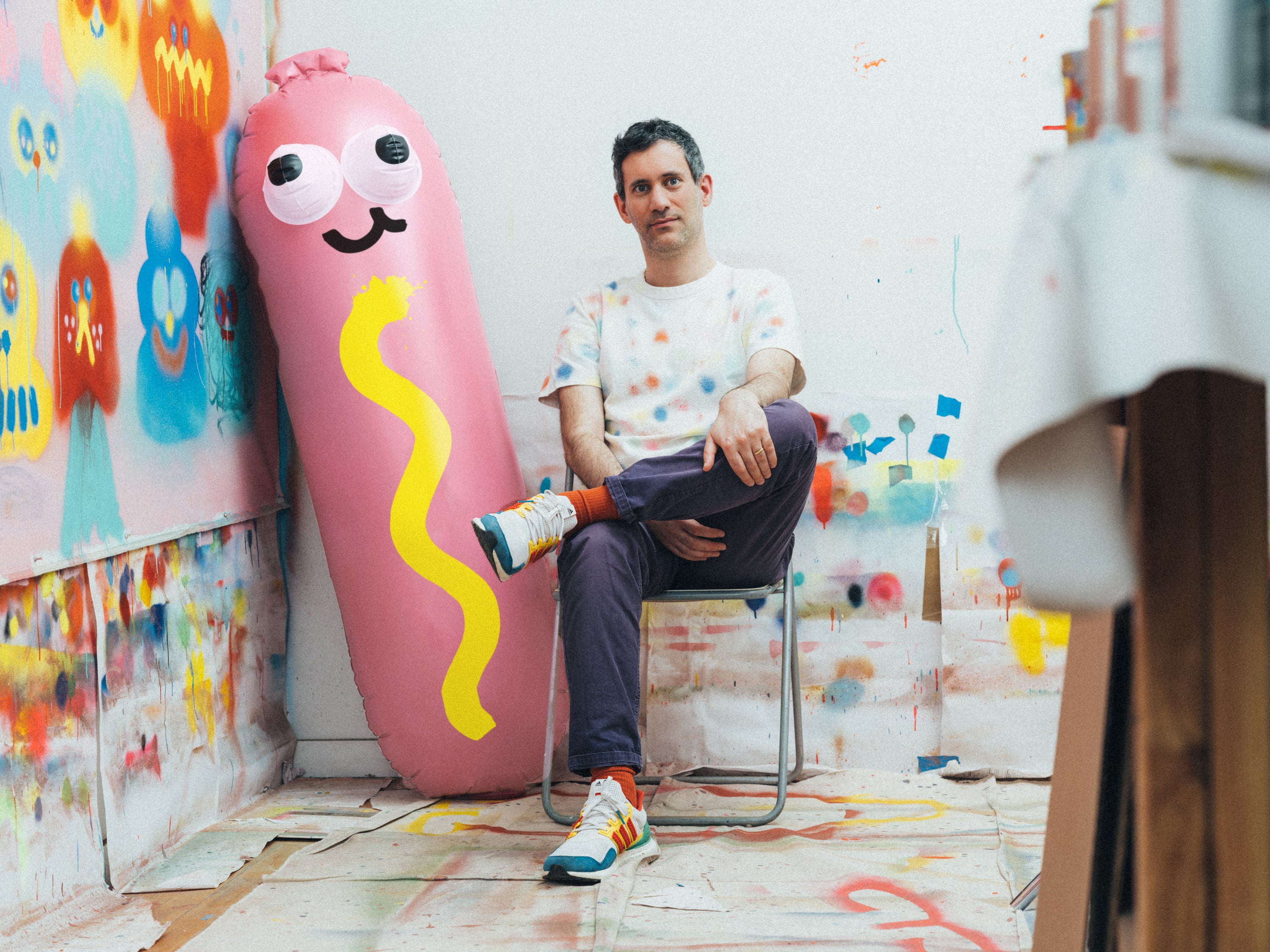Introducing Faith Ringgold: artist, activist, icon

Faith Ringgold is a powerhouse with a prolific art-making career of sixty years, drawing from personal autobiography and collective histories to document her life as an artist and mother and amplify social justice and equity struggles.
Born in 1930 in New York, NY, she is one of her generation's most influential cultural figures, with a career linking the multi-disciplinary practices of the Harlem Renaissance to the political art of young Black artists working today.
Our collection with this renowned American artist, also made in collaboration with New Museum in New York to celebrate her retrospective American People earlier this year, is now in store.
The Third Drawer Down x Faith Ringgold collection contains two 100% linen tea towels to use as functional items in your kitchen or to hang on the wall as artworks in their own right, plus two puzzles: one 36-piece brain game for kids and a 1000-piece for those who like a challenge.
"No other creative field is as closed to those who are not white and male as is the visual arts. After I decided to be an artist, the first thing I had to believe was that I, a black woman, could penetrate the art scene and that, further, I could do so without sacrificing one iota of my blackness or my femaleness or my humanity."
At 91 years old, Ringgold is well-known for her artwork, writing, and activist role in the civil rights movement. Her art encompasses mixed media, painting, sculpture and performance, but she is best known for her narrative quilts.
Drawing on craft traditions to tell stories about herself and the broader African American experience, the famed story quilts were inspired by her fashion-designer mother and Tibetan thangkas (paintings on cloth framed with brocade).
"I think I had struck on a combination of imagery and politics that worked."
She considers her American People series of paintings, which began in the summer of 1963, the start of her mature artistic work. Naming her own style as "Super Realism", Ringgold explored and depicted what was happening to black people in the United States, commenting on the Civil Rights movement from a woman's point of view.
In 1968, when the Whitney Museum of American Art neglected to include any African American artists in its exhibition of 1930s sculpture, Ringgold helped organise demonstrations. She co-founded the Ad Hoc Women's Art Committee, agitating for equal inclusion of women artists in the Whitney Biennial and the Where We At Black Women Artists Collective, a socially conscious group seeking more exhibition opportunities for black women. She was a member of Women Artists in Revolution and a founding member of the National Black Feminist Organisation. And Ringgold's activism continued right through to the 1990s.
"I don't think you can create art out of anger; it has to come out of some form of understanding. You have to feel good about who you are and that you could do something to change things."
From creating some of the most indelible artworks of the civil rights era to challenging accepted hierarchies of art versus craft through her experimental story quilts, Ringgold's body of work bears witness to the complexity of the American experience.
"I have always wanted to tell my story - or, more to the point, my side of the story."
Ringgold is also an award-winning author, having written and illustrated several books for children. Her autobiography, We Flew Over the Bridge: The Memoirs of Faith Ringgold was published in 1995. She is the recipient of over 75 awards, including 22 Honorary Doctor of Fine Arts Degrees. She is one of Time magazine's 100 Most Influential People of 2022. Her retrospective American People has now traveled from New Museum and is currently at San Francisco's de Young Museum until late November.
"You can't sit around and wait for somebody to say who you are. You need to write it and paint it and do it."
Explore the entire Faith Ringgold collection HERE


